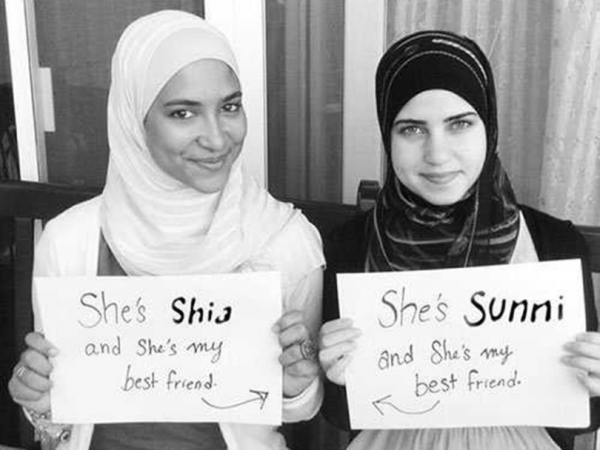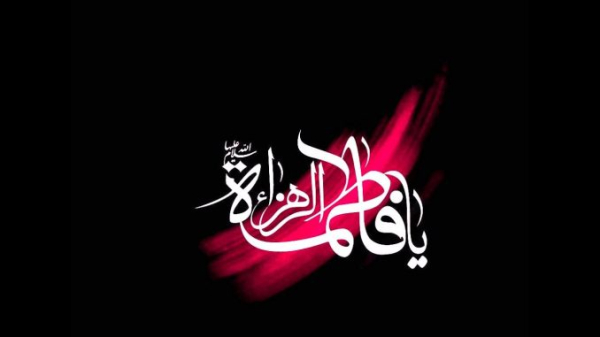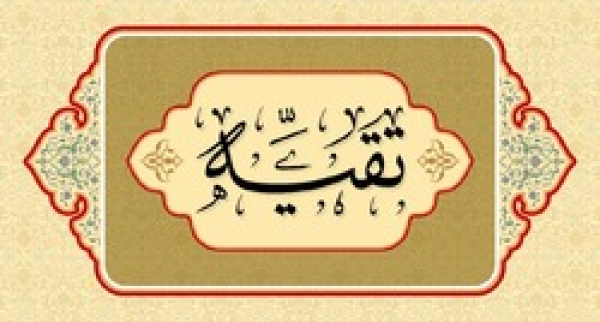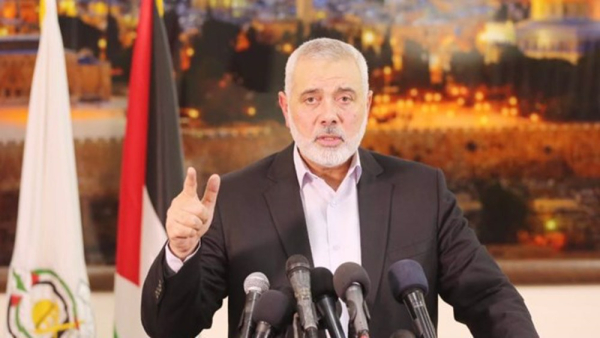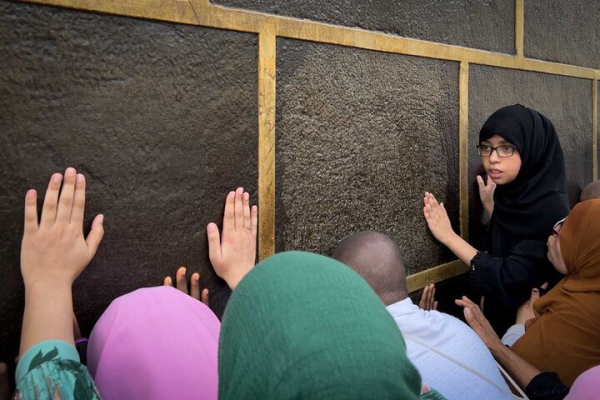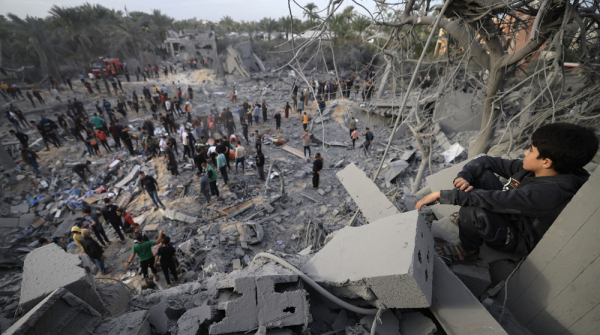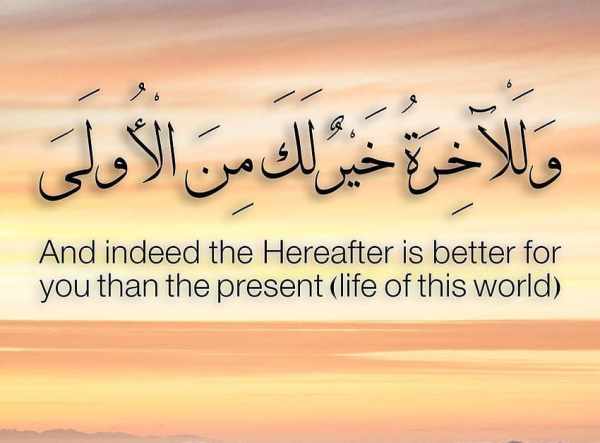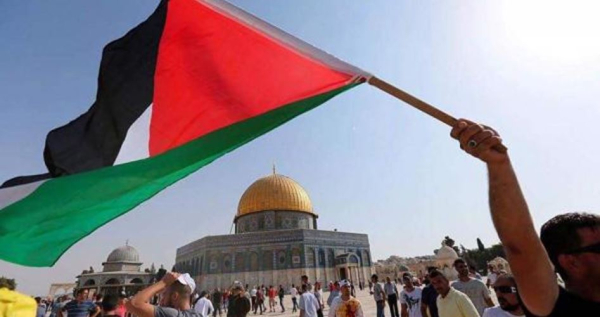zarezadeh
Patience and hope for God's grace
Whoever is wary of Allah, He shall make for him a way out [of the adversities of the world and the Hereafter]
وَمَنْ يَتَّقِ اللَّهَ يَجْعَلْ لَهُ مَخْرَجًا(طلاق:2)
Whoever fears God and does not violate the religious standards in his affairs, God will take him out of all the problems of this world and the hereafter, and religious doubts, and one day will bring him good things from a place where he has no hope.
Who are shias?
The term of Shia in the Arabic language means the follower.
The holy Quran says:
(صافات: 83) وَإِنَّ مِنْ شِيعَتِهِ لَإِبْرَاهِيمَ
Indeed Abraham was among his followers,
Then shia means follower. Shias are Muslims who believe that the Prophet of Islam (pbuh) had appointed his successor before departing this life in some special occasions.
The honored Prophet (pbuh), of course, applied this title to Imam Ali‟s followers in his lifetime, where he referred to Ali Ibn Abi Talib (a.s) as:
والذي نفسي بيده، ان هذا وشيعته لهم الفائزون يوم القيامة
(By Allah, Whom my life is in His hand, he [Ali (a.s)] and his followers are prosperous on the Day of Resurrection.)
Therefore, the term „Shia‟ is applied to a group of Muslims, who were so-called due to their belief that God appoints His caliphs. This group has already remained believing in following the Prophet‟s Ahlul-Bait (a.s).
Shia muslims believe Shahada (Faith) as the most important belief.
Shias believe to Allah, All messengers, Last messenger means the Holy prophet of Islam and his Quran.
Shiites believe in the Day of Resurrection, heaven and hell and divine justice.
Shias adhere to the teachings of Holy Prophet(s) and the religious guidance of his family who are known as Shia Imams or Ahlul Bayt and the last savior, Imam Mahdi.
They also perform:
Salah (Prayer)
Zakat (Almsgiving)
Sawm (Fasting)
Hajj (Pilgrimage)
Shia and sunni people are Muslims but enemies of Islam like to divide Muslims and creat hatred between them.
Martyrdom of Lady Fatima al-Zahra(pbuh)
āṭima (a) (Arabic: فاطِمَة) commonly known as Fāṭima al-Zahrā (a) فاطِمَة الزهراء) (d. 11/632) was the daughter of Prophet Muhammad (s) and Lady Khadija (a) and the wife of Imam Ali (a). She is one of the People of the Cloak and, in Twelver Shiite belief, one of the Fourteen Infallibles. She was the mother of second and third Imams, as well as Lady Zaynab (a). Al-Zahra', al-Batul, Sayyidat Nisa' al-'Alamin and Umm Abiha are among her epithets. She was the only lady chosen by the Prophet (s) to be part of the Mubahala with the Christians of Najran.
Shia scholars have narrated the date of martyrdom of Hazrat Fatima Zahra (peace be upon her) 75 or 95 days after the death of the Prophet, i.e. the 13th of the first Jumadi and the third day of the last Jumadi.
All creatures are mortal
كُلُّ نَفْسٍ ذَائِقَةُ الْمَوْتِ ۖ ثُمَّ إِلَيْنَا تُرْجَعُونَ
سوره عنکبوت آیه 29
Every soul shall taste death. Then you shall be brought back to Us.
What is Taqiyya in Islam?
The term taqiyya (تقیة) the root of this word literally means "caution, fear", "prudence, guarding against (a danger)", "carefulness, wariness". It can be used synonymously with the terms tuqa(n), tuqāt, taqwā and ittiqāʾ, derived from the same root. These terms also have other meanings. For example, the term taqwa generally means "piety"( fear [of God]) in an Islamic context.
A related term is kitmān (كتمان)– the "action of covering, dissimulation". While the terms taqiyya and kitmān may be used synonymously, kitmān refers specifically to the concealment of one's convictions by silence or omission. Kitman derives from the Arabic word 'katama', which is defined as, 'to conceal, to hide'.
Some Muslims used kitmān to conceal their Muslim beliefs in the face of persecution by their enemies.
The view of Shia scholars is that taqiyyah is disallowed only in the case of necessity such as fear of death and in other situationsit is not permitted. But in the situation that Islam is in danger it is not allowed
That is, if at some point Islam and religious teachings may be endangered by hiding the truth, human life is no longer important and one should not practice taqiyyah, even though he may be killed to protect his religion, there is no problem because he was martyred in the way of God. But if in normal conditions, a Muslim's life is in danger because of his beliefs, he can hide it.
We have Taqiyyah in Quran:
ا يَتَّخِذِ الْمُؤْمِنُونَ الْكَافِرِينَ أَوْلِيَاءَ مِنْ دُونِ الْمُؤْمِنِينَ ۖ وَمَنْ يَفْعَلْ ذَٰلِكَ فَلَيْسَ مِنَ اللَّهِ فِي شَيْءٍ إِلَّا أَنْ تَتَّقُوا مِنْهُمْ تُقَاةً ۗ وَيُحَذِّرُكُمُ اللَّهُ نَفْسَهُ ۗ وَإِلَى اللَّهِ الْمَصِيرُ(آل عمران:۲۸)
The faithful should not take the faithless for allies instead of the faithful, and Allah will have nothing to do with those who do that, except when you are wary of them, out of caution. Allah warns you to beware of [disobeying] Him, and toward Allah is the return.
Allah says in this Verse:
you should guard yourselves against them, guarding carefully for saving your life.
In the other verse, Allah says:
مَنْ كَفَرَ بِاللَّهِ مِنْ بَعْدِ إِيمَانِهِ إِلَّا مَنْ أُكْرِهَ وَقَلْبُهُ مُطْمَئِنٌّ بِالْإِيمَانِ وَلَٰكِنْ مَنْ شَرَحَ بِالْكُفْرِ صَدْرًا فَعَلَيْهِمْ غَضَبٌ مِنَ اللَّهِ وَلَهُمْ عَذَابٌ عَظِيمٌ(نحل:۱۰۶)
Any one who, after accepting faith in Allah, utters Unbelief,- except under compulsion, his heart remaining firm in Faith - but such as open their breast to Unbelief, on them is Wrath from Allah, and theirs will be a dreadful Penalty.
This verse was revealed about Ammar Yasir. When the polytheists in Makkah subjected him to all kinds of torment and torture and forced him to return from the religion of the Messenger of God, may God bless him and grant him peace, they say: They hung him in a well so that he would speak disbelief. Ammar had to express disbelief at such a time when his heart was confident and full of faith. Then he came to the Messenger of God, peace and blessings of God be upon him, crying. The Prophet said: O Ammar, is your heart full of faith or not? Ammar said: Yes, O Messenger of God, with complete certainty, my heart is full of faith, then this verse was revealed.
وَقَالَ رَجُلٌ مُؤْمِنٌ مِنْ آلِ فِرْعَوْنَ يَكْتُمُ إِيمَانَهُ أَتَقْتُلُونَ رَجُلًا أَنْ يَقُولَ رَبِّيَ اللَّهُ وَقَدْ جَاءَكُمْ بِالْبَيِّنَاتِ مِنْ رَبِّكُمْ(غافر:۲۸)
Said a man of faith from Pharaoh’s clan, who concealed his faith, ‘Will you kill a man for saying, ‘‘My Lord is Allah,’’ while he has already brought you manifest proofs from your Lord?
As a result, taqiyyah seems to be a religious and rational act.
Only Taqiyyah is forbidden in the place where taqiyya causes corruption in the religion and creates innovation in it in this situation we should leave it.
Hamas chief Haniyeh says Palestinians forced ceasefire upon Israeli regime
The leader of the Hamas resistance movement says Palestinians have forced Israel into accepting the group’s terms for a ceasefire agreement, vowing resistance fighters will continue to fight to liberate their lands.
Speaking on Friday, Hamas political bureau chief Ismail Haniyeh said the resistance managed to confront the occupation, break its will, and thwart its plan to get back its captives through genocide.
“The enemy has bet on restoring the captives by means of guns, killing, and genocide. But after nearly 50 days, the enemy has bowed to the conditions of resistance and our brave people’s willpower,” Haniyeh said.
The Palestinian leader said the group is prepared to continue confronting the Israeli onslaught on the Gaza Strip after the truce.
He vowed that Hamas would not vacate its positions in Gaza and refuse any “external interference” in the way the territory will be run in the future.
In his remarks, Haniyeh said the movement is committed to the truce and swap deal as long as the regime adheres to it.
Tabarruk in Islam
Tabarruk is the religious practice of asking for blessing and a request for favor and grace from God and holy beings. The subject of tabarruk can be human beings such as prophets (peace be upon them) and Imams (peace be upon them) or things such as the Qur'an or places such as Ka'ba.
In addition to having references in the Qur'an, hadiths and the conduct of the Prophet (pbuh), tabarruk is justifiable and valid according to theological and psychological principles. According to verses of the Qur'an, tabarruk has been practiced by other prophets as well.
The word "tabarruk" is not used in the Qur'an, but other derivatives from its root are mentioned 34 times including the words, "barak-a", "barakna", "burik-a", "tabarak-a", "barakat", "barakatuh", "mubarak", "mubarak-an", and "mubaraka". In the Qur'an, The word "Mubarak" [blessed] is used to describe certain people, beings, places, and times.
Ka'ba and al-Masjid al-Haram are among blessed places. Allah says:
إِنَّ أَوَّلَ بَيْتٍ وُضِعَ لِلنَّاسِ لَلَّذِي بِبَكَّةَ مُبَارَكًا وَهُدًى لِلْعَالَمِينَ(آل عمران:96)
"Indeed the first house to be set up for mankind is the one at Bakkah, blessed and guidance for all
nations."
As you see many people go Mecca for hajj or Umra and then they go to touch Kabba and asking Allah for belessing or many people from different country touch Hajar Alaswad.
The Glorious Qur'an has referred to tabarruk in some verses and has not mentioned it either prohibited or permissible. Moreover, some these cases are practiced either by prophets themselves or at their presence which clearly shows its permissibility.
Prophet Jacob (یعقوب) sought tabarruk from Joseph's (یوسف) shirt which is mentioned in the Qur'an.
ذْهَبُوا بِقَمِيصِي هَٰذَا فَأَلْقُوهُ عَلَىٰ وَجْهِ أَبِي يَأْتِ بَصِيرًا وَأْتُونِي بِأَهْلِكُمْ أَجْمَعِينَ(یوسف: 93)
When Joseph (a) told his brothers to put his shirt on the eyes of their father, "Take this shirt of mine, and cast it upon my father's face; he will regain his sight…" (Qur'an 12:93) then God's mercy flew from Joseph's shirt to the eyes of Jacob (pbuh) and he sought tabarruk from it and regained his sight.
Conduct of the Prophet (pbuh) is a support for permissibility of seeking tabarruk. Some hadiths suggest that he used to encourage his companions to seek tabarruk from him.
For example, On the night of Lady Fatima's (pbuh) marriage, the noble Prophet (pbuh) performed wudu and sprinkled the rest of the water of his wudu on the faces of Lady Fatima (pbuh) and 'Ali (pbuh) and asked God to bless them and their progeny.(Qundūzī, Yanābīʿ al-mawadat li-dhi l-qurbā, p. 174-175, 196-197)
There are also reports about blessing the water of the well of Hudaybiyya by remnants of his drinking water. Aḥmad b. Ḥanbal, Musnad, vol. 10, p. 391.
The people who say that it is Shirk/Kufr to believe in Taburruk should have proof from the either the Qur’an or Sunnah. There is no Hadith that proves that to get Tabarruk from the pious is forbidden.
Israel says no pause in Gaza fighting, continues to pound enclave despite truce
Israel says there will be no halt to the fighting in the Gaza Strip, as it continues to bombard the besieged enclave despite agreeing to a four-day truce with the Palestinian resistance movement Hamas.
An unnamed Israeli official told AFP early on Thursday that the temporary ceasefire and the planned release of prisoners have been delayed and will not come into effect until Friday at the earliest.
The official’s comments came after Tzachi Hanegbi, an adviser to Israeli prime minister Benjamin Netanyahu, said none of the prisoners held by Hamas in Gaza would be freed before Friday.
“The release will begin according to the original agreement between the parties, and not before Friday,” he said in a statement on Wednesday night, adding that talks on the deal were continuing.
Hanegbi gave no reason for the delay, and it was not clear when Israel would begin a four-day pause in its attacks on Gaza, which was expected to take effect at 10 a.m. local time Thursday.
And the Hereafter shall be better for you than the world
In sura alZoha Allah says:
And the Hereafter shall be better for you than the world
The world is not a place for peace and comfort, but man always faces difficulties and hardships and is involved in various issues such as illness, war or problems such as conflict with evil and wicked people, and sometimes if we have happiness in this world, it is not permanent but fleeting. But in the hereafter and in heaven, God gives the best blessings to righteous servants, which is eternal and stable.
The history of the formation of Israel and occupation of Palestine
In 1898, "Theodor Herzl", a Jewish journalist and author in Austria, published a book entitled "Jewish State". In this book, he defended the formation of a Jewish state and gave Western public opinion an intellectual basis for welcoming the Zionist movement. Since the Jews in Germany had more political influence and freedom of action than in other countries, "Hertsal" first tried to get the opinion of the Ottoman Sultan through the German government to settle the Jews in Palestine, but due to several political reasons, including the declaration of Muslim Jihad against the invaders. The foreigner did not meet with success. For this reason, the Jews threw themselves into England.
In the negotiations that the Jewish leaders had with "Sykes", the representative of England, they assured him that they would defend the British protectorate of Palestine in the "League of Nations". On the other hand, they promised Sykes a loan and also pledged to pressure the United States government to intervene in the war for the benefit of the Allies and against Germany. These actions actually prepared the ground for the publication of the "Balfour Declaration" on November 2, 1971. "Balfour", the foreign minister of England at the time, announced the establishment of the Jewish national homeland in a letter addressed to Lord Rothschild, this letter became known as "Balfour Declaration". This announcement stated:
"Given the special interest that the British government has in establishing a Jewish national homeland in Palestine, it will try to achieve this goal and facilitate its means."
After issuing the Bafur Declaration, the British military forces occupied Jerusalem in Palestine on December 9, 1971, and by the fall of 1918, they were able to force all the Ottoman military forces in Palestine to surrender and capture the entire territory of this country. In 1919, the "San Remo" conference, which was formed by the representatives of France, England and Italy, after examining the comprehensive situation of Palestine, announced its agreement on the British protectorate of Palestine. On July 24, 1922, the British Trusteeship in Palestine was officially approved by the Council of the League of Nations.
In the light of the support of England and despite the opposition of the Arabs, the immigration of Jews to Palestine, which had started a few years ago, gained more speed.
On the other hand, Hitler's anti-Jewish policy caused the number of European immigrants to increase even more. So that in 1946, out of 1,560/972, the population of Palestine, more than 608,000 of them were Jews. While the number of Jews in 1918 was about 56,000 people. Most of these immigrants were from Eastern Europe. Parallel to the increase of the Jewish population in Palestine and the rise of their political power in the region, the Arab masses, who were angry and at the same time worried about the influence of the Jews, pressured England not to side with the Zionists. At this time, the Zionists in Palestine had practically created an autonomous force and created a secret army called "Haganah". The task of this army was to assassinate the opposition and fight against the Arab masses.
In order to silence the Arab masses and prevent their uprising, England published the "White Book" in 1939 and declared that Jews can have a national center in Palestine, but they do not have the right to establish an independent state. This announcement angered the Zionists and they decided to implement their intentions against the British opinion. But at this time, the Second World War began and the Palestinian issue was overshadowed by news related to the war.
After the end of World War II in 1947, England announced that the following year, it would withdraw from Palestine and hand over its administration to the United Nations. On November 29, 1947, the United Nations General Assembly issued a resolution dividing Palestine into three parts. 43% of it was given to Arabs and 56% to Jews. Jerusalem was also declared international.
When the British protectorate over Palestine ended on May 15, 1948, all Palestinian political institutions were actually destroyed and there was no organization to fill the void. The Zionists, who dominated the areas of the Jewish state in the Partition Resolution, established a 38-member Provisional Governing Council, which in turn elected a 13-member cabinet. On the same day, David Ben-Gurion, who later assumed the position of Prime Minister and Minister of Defense, announced the formation of the government. Immediately after this announcement, the governments of the United States of America and the Soviet Union recognized Israel.
In this way, the unrest in the occupied territories intensified from May 1987. The Palestinian people could not so easily accept foreigners coming to their country and taking over their lands. In the conflicts that happened between Palestinians and Israelis, the Palestinians were always injured because the Israelis were equipped with all kinds of deadly weapons with the support of other countries, and the Palestinians fought without weapons. Every day, a large number of Palestinian teenagers and young people protecting their country, they were killed by the Israelis, and this story continued until today, when the Israelis razed the entire city of Gaza to the ground and killed a large number of civilians, and this killing and this sad story continues...

